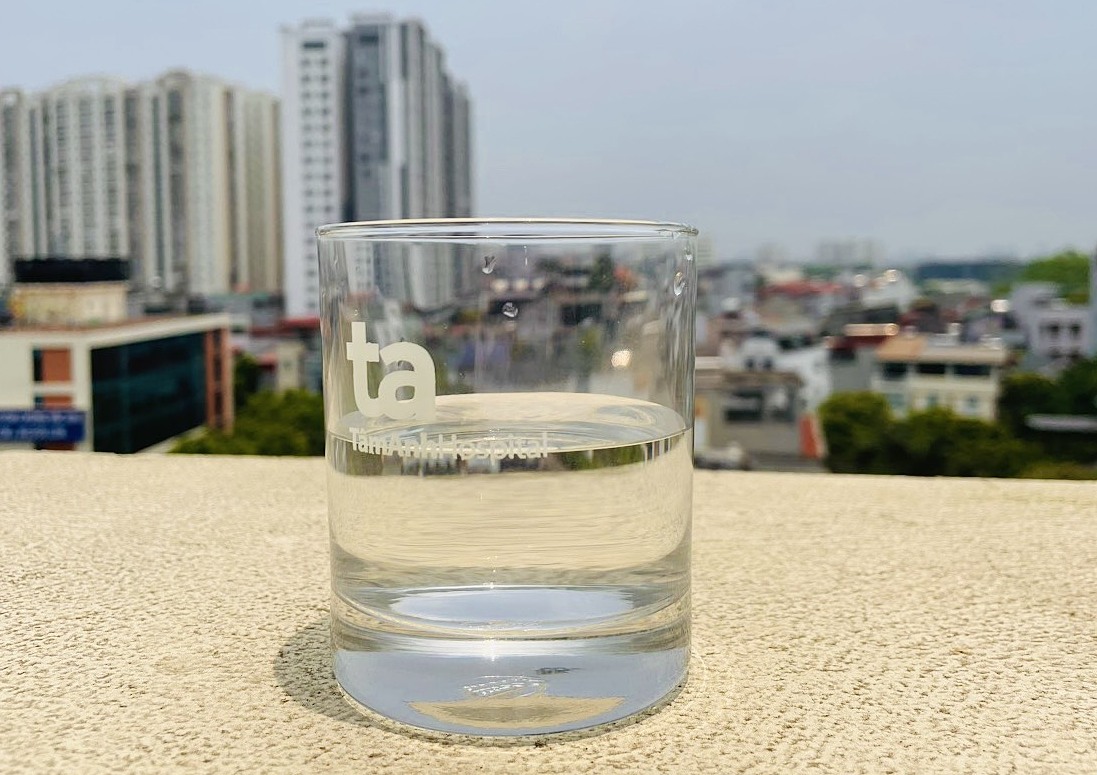Doctor Do Thi Thao, from the Cardiology Department of Tam Anh General Hospital in Hanoi, explains that water helps regulate body temperature, aids digestion, maintains blood pressure, and supports cardiovascular function. Incorrect hydration habits can increase the risk of heart damage.
Only drinking when thirsty is a common mistake. By the time you feel thirsty, your body's water levels have already dropped enough to affect physiological functions, including cardiovascular health. Many people, due to busy schedules or a reluctance to use the restroom, drink too little water, leading to dehydration. This causes the blood to thicken, increasing the strain on the heart as it pumps blood throughout the body. Thicker blood also increases the risk of blood clots, especially in those with risk factors like cardiovascular disease, hypertension, or diabetes.
Dehydration also increases blood sodium levels. It's essential to drink water regularly throughout the day, even when not thirsty, especially for older adults and those with heart conditions, as their thirst response may be less sensitive.
Drinking too much water at once, especially in the evening, makes the heart work harder due to the rapid increase in blood volume. This is particularly risky for people with hypertension or heart disease, as it can overload the heart.
Doctor Thao explains that when a large volume of water is consumed in a short period, the body can't eliminate it quickly enough. The excess water dilutes blood sodium, causing hyponatremia. This leads to water entering the cells, especially brain cells, causing cerebral edema. Symptoms can range from mild, such as headaches and nausea, to severe, including seizures, arrhythmia, coma, and even cardiac arrest if not treated promptly.
 |
Incorrect water consumption can increase the risk of heart damage. Photo: Tam Anh General Hospital |
Incorrect water consumption can increase the risk of heart damage. Photo: Tam Anh General Hospital
Drinking too much water right before strenuous activity can also dilute electrolytes, increasing the risk of arrhythmia, headaches, fatigue, and even acute hyponatremia. Doctor Thao recommends drinking water gradually 2–3 hours before exercise and taking small sips during activity.
At night, as body temperature drops and blood vessels tend to constrict, drinking cold water suddenly can trigger vasoconstriction. This increases the risk of coronary artery spasms, causing angina or arrhythmias, especially for those with underlying heart conditions or atherosclerosis.
Even when thirsty, avoid drinking excessive amounts of water at night, as it makes the heart work harder and can lead to frequent urination and sleep disturbances. If thirsty, take small sips of water, just enough to quench your thirst. Opt for warm or room-temperature water instead of cold water to minimize adverse effects on the cardiovascular system.
Many people regularly consume milk tea, bottled soft drinks, carbonated beverages, and energy drinks. These drinks are harmful to cardiovascular health due to their high sugar and sodium content, increasing the risk of hypertension, dyslipidemia, and promoting heart disease. Excessive consumption of sugary drinks also raises the risk of metabolic heart diseases and other chronic illnesses.
The World Health Organization (WHO) recommends that adults consume less than 25 g of sugar per day (about 6 teaspoons). For those with hypertension, prehypertension, or a high risk of heart disease, the recommended intake is less than 15 g per day (about 3–4 teaspoons).
To protect cardiovascular health, Doctor Thao advises maintaining regular hydration, drinking about 1.5–2 liters of water daily, prioritizing plain water and low-sodium mineral water, and adjusting intake based on individual needs, weather conditions, and activity levels.
Ly Nguyen
| Readers can submit questions about cardiovascular disease here for doctor's answers |












